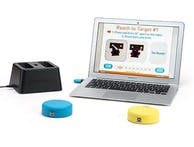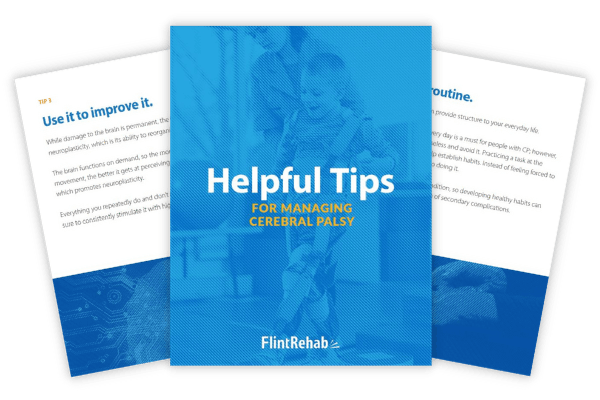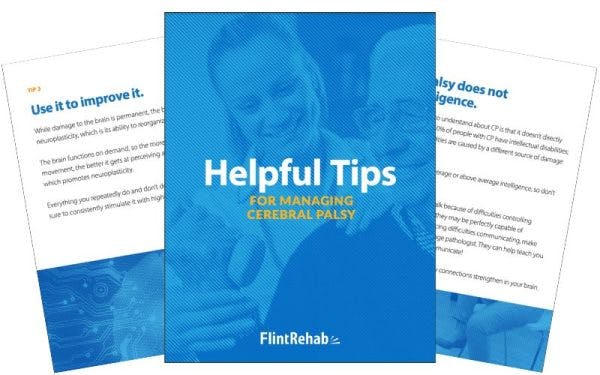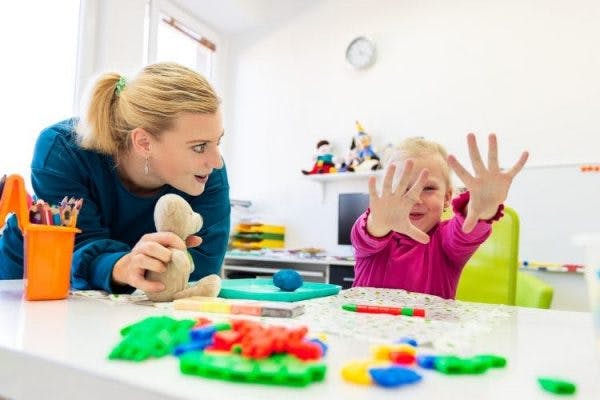Many people with cerebral palsy experience feeding challenges, which can lead to nutritional deficiencies. Taking supplements, such as vitamins, may be an effective way for individuals to ensure their nutritional needs are being met.
The 7 vitamins for cerebral palsy presented here may help manage cerebral palsy symptoms and minimize the risk of further complications. While these nutrients cannot replace a healthy diet, they are an essential component of one. Thus, it is important to understand which vitamins are best for individuals with cerebral palsy in order to ensure adequate nutrients are being consumed.
Importance of Nutrition for Individuals with Cerebral Palsy
Cerebral palsy is a developmental condition that results from damage to areas of the brain associated with movement in early life. Although the effects of cerebral palsy vary widely, individuals frequently experience difficulties with movement, balance, posture, and/or coordination.
Although cerebral palsy is not a progressive condition, individuals with cerebral palsy may experience worsening of symptoms without proper management techniques.
One important aspect of managing cerebral palsy is maintaining a healthy, nutrient-rich diet. Although everyone should strive toward healthy eating patterns, it is especially important for individuals with cerebral palsy to ensure they are providing their bodies with the nutrients they need.
This is because individuals with cerebral palsy are at a higher risk of developing growth and nutrition disorders. Without proper nutrition, individuals may experience decreased bone density and muscle mass, increasing the likelihood of further complications.
The primary reason individuals with cerebral palsy experience undernutrition is oral feeding difficulties. Since cerebral palsy may affect the muscles in and around the mouth, 30 to 40% of people with cerebral palsy have trouble with effectively chewing and swallowing their food. These challenges can even result in some individuals requiring a feeding tube.
With the difficulties surrounding oral food intake, as well as the increased importance of proper nutrition for those with cerebral palsy, it is especially vital to ensure the most beneficial nutrient-rich foods are being consumed. Focusing on eating a diet rich in the best minerals and vitamins for cerebral palsy can be great way to manage cerebral palsy effects and promote overall health.
The Best Vitamins for Cerebral Palsy
Individuals with cerebral palsy can greatly benefit from a diet packed with healthy foods. However, oftentimes it can be difficult to know which foods are best. Consulting with a dietician can provide clarity in this area.
Whether or not one chooses to work with a dietician, it can be helpful to know what some of the best minerals and vitamins for cerebral palsy are in order to make an informed decision about which foods to eat. While consuming essential minerals and vitamins for cerebral palsy through food is optimal, many benefit from using supplements to ensure they have filled their nutritional needs.
Below is a list of 7 of the best supplements, minerals and vitamins for cerebral palsy that boost brain function and help heal the body.
1. Vitamin C
In addition to being essential to many functions within the brain, Vitamin C is potent in antioxidants, which combat free radicals and prevent oxidative stress. Since oxidative stress may cause or increase memory loss and depression, which individuals with CP are already more vulnerable to, this antioxidant effect is especially beneficial.
Vitamin C also enhances the synthesis of norepinephrine, which is a neurotransmitter (chemical messenger in the brain) that improves focus and energy. It’s also crucial for maintaining bone health because of its involvement in gene regulation that influences bone development.
Citrus foods, such as oranges and grapefruit, tend to be excellent sources of vitamin C.
2. Vitamin B12
Vitamin B12 keeps nerve cells healthy by forming the cell’s myelin sheath (a protective covering for axons). It also helps promote neurotransmitter signaling to help regulate mood, modulate the body’s stress response, and prevent memory loss.
Vitamin B12 deficiency is associated with memory loss, depression, weak muscles, digestion problems, and irritability. These conditions are common among people with cerebral palsy.
Foods that are high in vitamin B12 include fortified cereals and seafood such as clams, trout, salmon, and tuna.
3. Calcium and Vitamin D
Calcium and vitamin D work hand in hand, and are necessary for the bone health of children with cerebral palsy. When individuals with cerebral palsy don’t receive adequate nutrition, they are at risk for malnutrition. This leads to weak bones that are susceptible to fractures.
Vitamin D helps the body absorb calcium, which is essential for strengthening the bones. Nervous tissues also use energy from calcium to stimulate nerve impulses and regulate muscle contractions, making calcium essential for movement in addition to bone health.
Calcium and vitamin D can be found in dairy products, such as milk, yogurt and cheeses. Dark, leafy greens are also excellent sources of calcium, while fish is rich in vitamin D.
4. Magnesium
Over 75% of individuals with cerebral palsy experience spasticity (involuntary muscle contractions), making it difficult to move and eat effectively because their muscles continuously contract. Magnesium may reduce spasticity and increase range of motion by relaxing the muscles and promoting nerve function.
Magnesium may also help individuals with CP who experience gastroesophageal reflux disease (GERD) and other digestion problems. It is used in laxatives, heartburn and upset stomach medications to relieve constipation, relax the muscles in the digestive tract, and neutralize stomach acid. Just like calcium, magnesium is essential for bone health and preventing osteoporosis.
High levels of magnesium can be found in legumes, nuts and dark, leafy greens such as spinach.
5. Zinc
Zinc plays an important role in the brain, influencing a variety of functions such as learning, memory, and mood. It promotes communication between neurons (brain cells) and regulates neurotransmitter activity.
Because children with cerebral palsy often have learning difficulties and mood swings, ensuring that they are not zinc-deficient may boost their cognitive abilities and reduce emotional outbursts.
One of the best sources of zinc is oysters. Others sources include meat and fish.
6. Omega-3
Omega-3 fatty acids are essential for brain development and the maintenance of brain function throughout life. Omega-3s can be found in fish oil or flaxseed supplements. DHA is a type of omega-3 that regulates nerve growth and has neuroprotective effects.
Children with cerebral palsy who have learning difficulties may benefit from omega-3, as it helps improve cognitive functions such as learning and memory. Studies suggest that omega-3s may promote muscle, joint, and bone health, which is fundamental for impaired movement.
Fatty fish and nuts are often high in omega-3 fatty acids.
7. Probiotics
Eating probiotics has been shown to promote digestive health, reduce constipation, and increase immune cells in individuals with cerebral palsy. Probiotics increase healthy bacteria in the gut, which is essential as many individuals with cerebral palsy experience digestive problems.
Furthermore, since the gut and brain are connected through biochemical signaling, good bacteria levels in the gut allow for the production of neurotransmitters that improve mood and brain function. In fact, 99% of serotonin (the ‘feel good’ chemical) is made in the digestive tract. Therefore, probiotics may help with not only with digestion, but also with cognitive functions and overall mental health.
Yogurt and kefir are two of the best sources of probiotics.
Vitamins for Cerebral Palsy Should Not Replace a Healthy Diet
While consuming adequate amounts of minerals and vitamins for cerebral palsy is important, these nutrients should be used to supplement a healthy diet, rather than completely replace nutritional foods. Some individuals with cerebral palsy can get all their essential nutrients through proper nutrition, so supplements should only be taken when necessary.
It is important to note that vitamins won’t cure an individual’s motor impairments or heal their brain damage. Instead, adding appropriate minerals and vitamins for cerebral palsy can promote the health of the brain, bones, muscles, and digestive system, limiting the probability of complications.
If your child has difficulties chewing, consider blending their food so that it is easier to swallow. A speech therapist or dietician may be able to give further insight into appropriate foods for individuals with feeding difficulties in order to optimize their dietary intake.
Understanding Vitamins for Cerebral Palsy
Individuals with cerebral palsy are at an increased risk for malnutrition, primarily due to feeding challenges. Focusing on eating a healthy diet while ensuring that all nutritional needs are being met is an important component of managing cerebral palsy.
When individuals with cerebral palsy are unable to consume the minerals and vitamins they need, the risk of complications increases. Therefore, it is vital to include adequate minerals and vitamins for cerebral palsy in one’s diet, utilizing supplements as necessary.
Consulting with a dietician can help individuals with cerebral palsy and their families learn what foods and nutrients they need to lead a healthy lifestyle and minimize the risk of further complications.
Understanding which vitamins for cerebral palsy are most beneficial can help individuals focus on eating a healthy diet that meets their needs.











